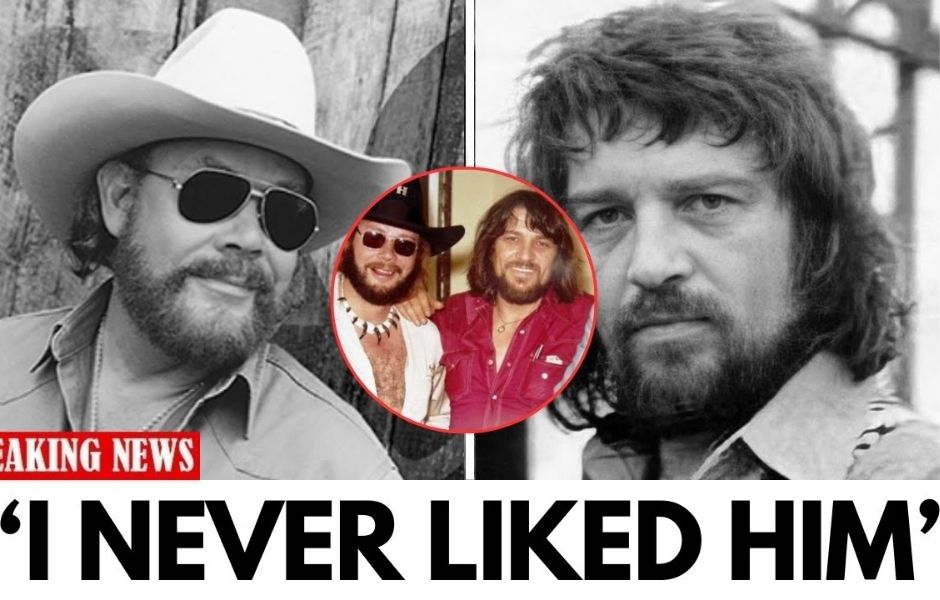
For decades, fans and industry insiders alike have whispered about the dynamic between Hank Williams Jr. and Waylon Jennings. Were they rivals? Friends? Something more complicated? Now, after years of speculation, Hank Jr. has broken his silence — and what he said has stunned the music world.
Born into the towering legacy of his father, Hank Williams Sr., Hank Jr. spent his early life trying to live up to impossible expectations. But instead of mimicking the past, he blazed his own trail — infusing Southern rock into country music and refusing to be just “his daddy’s son.” Meanwhile, Waylon Jennings was forging a revolution of his own. After early years with Buddy Holly, Jennings pushed against the constraints of the Nashville music machine, helping launch the outlaw country movement with Willie Nelson and others.
Their paths were bound to cross — and they did, with intensity. Rumors swirled for years about creative clashes, secret rivalries, and backstage showdowns. Some fans believed Hank Jr. wanted Waylon’s outlaw edge; others thought Waylon was wary of Hank’s legendary surname.
But the truth, Hank now reveals, is far more human.
“We were two strong-willed, stubborn men who respected each other,” Hank says. “We butted heads, sure. But we never lost that respect.”
Their relationship wasn’t a buddy comedy or a bitter feud. It was more like a slow-burning fire — full of disagreements over music, clashing opinions about the industry, and moments of deep understanding. Both men hated being told what to do. Both believed in raw, unfiltered music. And both were haunted by inner demons.
Waylon battled substance abuse publicly; Hank grappled with a near-fatal fall in 1975 and the crushing weight of his father’s ghost. They didn’t always get along, and tabloids exaggerated every disagreement. But away from the spotlight, they shared real moments — like when Waylon tried to visit Hank after his accident, or when Hank refused to preach to Waylon about his addiction, knowing he wouldn’t listen unless he was ready.
One of the most controversial moments came when Waylon openly said Hank Jr. might surpass his father. Fans were shocked, even angry. But Hank, though surprised, saw it as a compliment — a push to step out from under his father’s shadow.
The idea of a full collaboration between them was always tantalizing — but it never materialized. Personal struggles, timing, and creative tension kept it just out of reach. Still, they shared stages, recorded duets, and left behind moments that country music lovers still talk about.
When Waylon passed in 2002, Hank remained mostly silent. That silence, he now admits, masked a deep personal grief.
“He reminded me to never bow,” Hank confesses. “We never got the big farewell moment, but I think that’s how Waylon wanted it.”
Their final conversation was typical — teasing, real, and completely unsentimental. No dramatic goodbyes. Just two outlaws talking music and calling out the industry one last time.
Now, decades later, Hank Jr. wants people to understand that what they shared can’t be reduced to headlines.
“People ask if we were friends or enemies. I say we were something more real than either of those.”
He hopes young artists will take inspiration from that — not in the drama, but in the refusal to conform. Both he and Waylon believed that real music comes from guts, not marketing. That truth still echoes in the rebellious spirit of today’s outlaw artists — from Shooter Jennings to Hank Williams III.
In the end, Hank’s message is clear: legends don’t fade quietly. They blaze trails, rattle cages, and leave sparks that keep the fire alive for generations.
